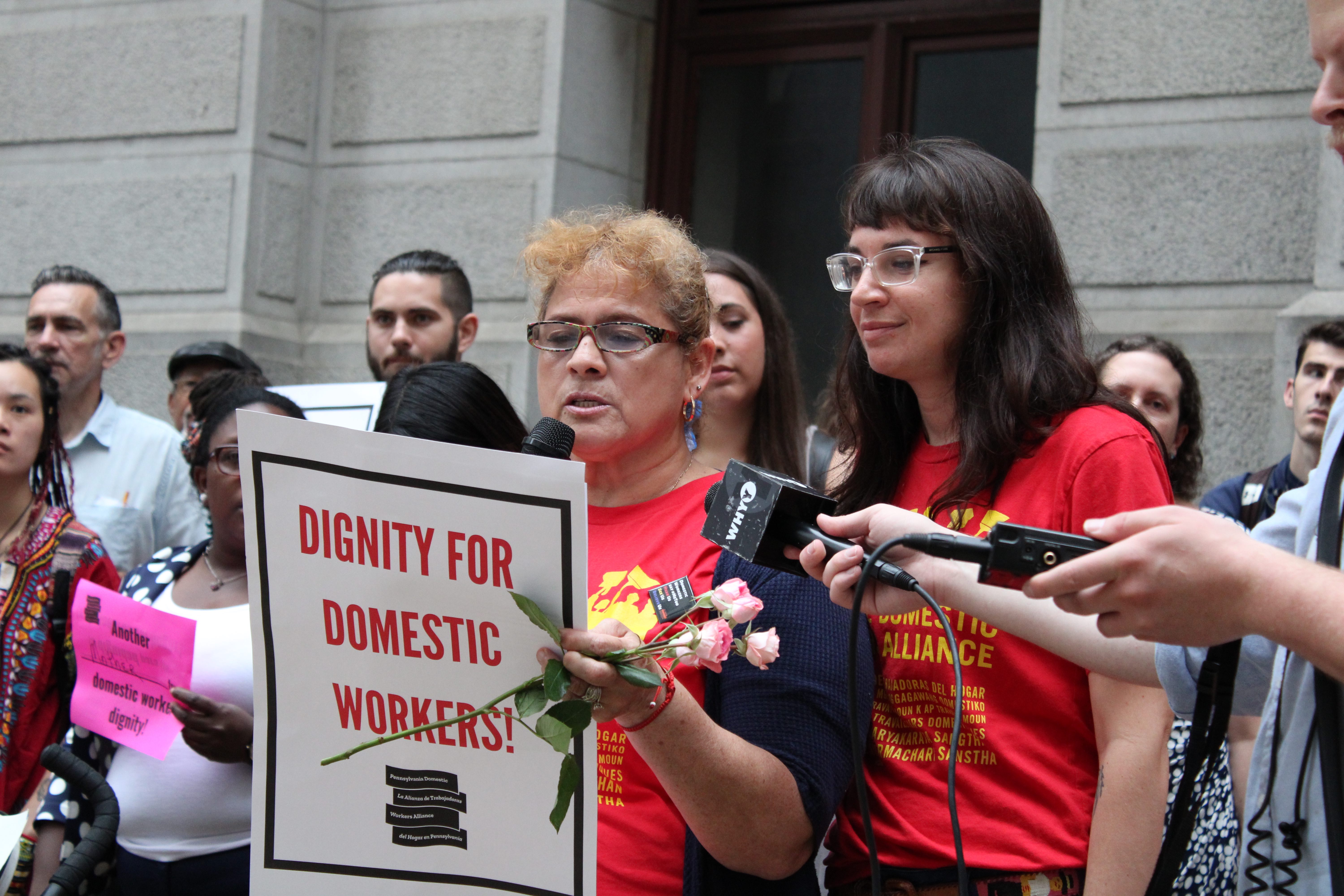
Philadelphia City Council introduces Domestic Worker Bill of Rights
If passed in the fall, the landmark legislation will make Philadelphia the largest city in the U.S. to extend labor rights to domestic workers.
On June 20, Philadelphia celebrated International Domestic Workers Day by marking the introduction of legislation into City Council that would extend legal protection to the city’s close to 16,000 nannies, housekeepers, and caretakers.
The Domestic Worker Bill of RIghts, put forth by the Pennsylvania Domestic Workers Alliance (PDWA), was written by workers alongside a legal team from Community Legal Services. It is currently supported by more than 40 unions and organizations, and has Councilwoman María Quiñones-Sánchez as its prime legislative sponsor.
Domestic workers and PDWA leaders María del Carmen Díaz and Betania Shephard each spoke at the press conference outside of City Hall which marked the introduction of the legislation and a City Council resolution honoring domestic workers. They highlighted the importance of the bill, and the impact it will have for the tens of thousands of domestic workers in the city, the majority of whom are women of color, and many of whom are immigrants.
[node:field_slideshow]
“The bill of rights we’re introducing today contains everything that we need,” said del Carmen Díaz.
The labor rights extended to domestic workers in the legislation include written agreements, minimum wage, paid overtime and sick days, advanced scheduling notice, freedom from harassment and discrimination, and benefits, among other protections related to civil rights, health, and safety.
The bill also stipulates the need for a board which would include members that are domestic workers and work to ensure that employers follow the law and abide by all regulations.
Kim Huynh, community organizer with the Pennsylvania Domestic Workers Alliance, said that the bill itself, if passed when City Council returns to its session in the fall, will be “one of the strongest standard-setting bills across the country in the domestic worker industry.”
Philadelphia will become the largest city in the country to have passed a labor rights bill specifically for domestic workers, joining the city of Seattle and nine states who have already passed similar legislation.
Quiñones-Sánchez lauded the bravery of the domestic workers who shared their stories at a hearing on the bill in City Council’s Labor and Civil Service Committee on April 8.
“Their work, caring for our most vulnerable communities, whether it’s our young children or our elders, finally will be recognized,” she said.
RELATED CONTENT
The mood was celebratory, but workers, advocates, and politicians alike pointed to the enforcement of the law, once it is passed, as being key to its success.
Shephard, a domestic worker from the Dominican Republic who has been one of the leaders in PDWA, said she has faith that the bill of rights will prove effective.
“Now we’re going to have reinforcement, a support, so if someone wants to do something, we don’t have to put up with them just because we need the money. Because now it’s a legal thing. If they commit an abuse, well, they’re going to have to face consequences,” said Shephard.
City Council will vote on the bill when it returns to session in September after the summer recess.

This article is part of Broke in Philly, a collaborative reporting project among more than 20 news organizations, focused on economic mobility in Philadelphia. Read all of our reporting at brokeinphilly.org.











LEAVE A COMMENT: